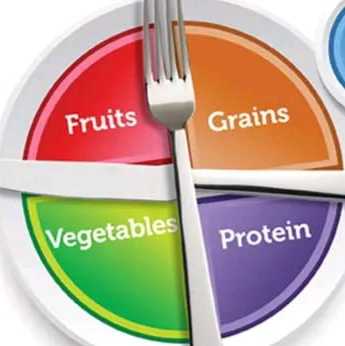What should we eat, should we eat and what should we not? These are important questions about which good leaders will find credibility, but there is a problem here. We guess that's fine, but what is a good guideline for diet? It's easy to judge the impact of a product on pigments, fats, cholesterol, sugar, salt, and all kinds of chemicals. And not only diet is responsible for health, there are many other factors too, exercise, physical health, genetics and many more.
One concern about the diet is the high consumption of sugar. It is linked to many health issues and there is no doubt that most of us have an excess of sugar. And many times more than necessary.
We have no grace in eating nearly half. In double bread, dressings and other processed foods. A quarter of a bottle of ketchup sugar.
And the next problem is that even in many good foods there is sugar. The liver doesn't care if the sugar comes from an apple or a Pepsi. No, the difference is definitely that apple gives us party, minerals and also fills us up. And one thing to note here. Sweeter than today's modern fruit pickers.
Many fruits and vegetables are below quality standards. Iron content in modern fruits has decreased by 50% compared to the middle of the Basis sofa, while calcium has decreased by 12%. Focused agricultural practice is producing with great success.
But changing food patterns are taking it in a strange direction. The most popular vegetable french fries in many countries of the world at the moment.
..
A dispute over a major symptom of our confusion is resolved. Salt is very important for us. Without it we cannot survive. Our tongues are special for sensing salty tastes. Lack of salt and we cannot produce water so it must be part of diet. Is this the problem that we take soft? If you use less, you will become more exhausted and die. Heavy users will proceed to give you prayers which can lead to heart failure or stroke and death.
A UK study estimated that 30,000 people in the UK died each year from excess salt intake, while another concluded that only those who were already indiscriminately at risk were at risk. The risk from deficiency is at least as great.
Confirmation bias (confirmation bias) due to lack of agreement.
..
It's often easier to make someone look creepy. For example, what if someone told you that eating meat increases the risk of colon cancer? That's right. This means that the lifetime risk of developing this cancer is 5%, while consumption of meat increases it to 6%.
You may not want to take this risk, but the decision is to give voice to death anyway.
..
A lot of exercise, lifestyle, salt and sugar intake, cholesterol, trans fat, fat etc. are behind health. It's easy to blame someone According to one doctor, "Heart attacks are 50 percent genetics and 50 percent cheeseburgers." This is an exaggeration but the point is wrong.
..
The simplest course of action is to eat a balanced diet, don't overeat, and don't use sugar and salt unnecessarily. Consuming more vegetables, complete avoidance of all kinds of intoxicants.
The short story is that it is important to understand your diet in the most sensible way.
#health











Deluar Hoseen
Tanggalin ang Komento
Sigurado ka bang gusto mong tanggalin ang komentong ito?